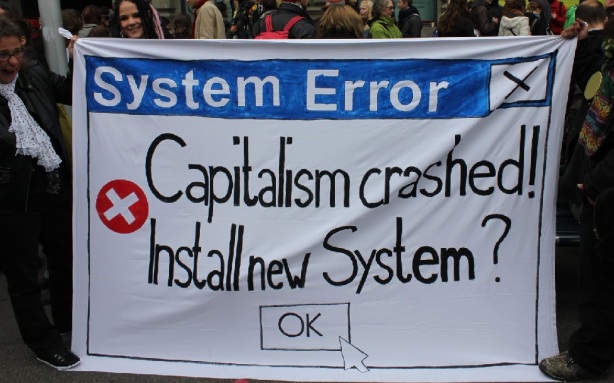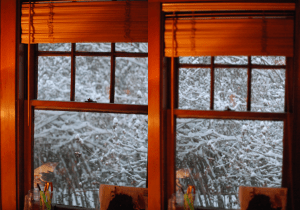Please enjoy:



Seven Songs from the Sixties:
====================================
[NOTES & CREDITS]
========================================
Strangers in the Night
[From Wikipedia, the free encyclopedia]:
“Strangers in the Night”
is a popular song credited to Bert Kaempfert with English lyrics by Charles Singleton and Eddie Snyder. Kaempfert originally used it under the title “Beddy Bye” as part of the instrumental score for the movie A Man Could Get Killed. The song was made famous in 1966 by Frank Sinatra.
“Strangers In the Night”
Song by Frank Sinatra from the album Strangers in the Night
Released 1966
Recorded April 11, 1966
Genre Traditional pop
Length 2:35 (original album/single version, incorrectly listed as 2:25 in the original back cover)
2:44 (extended version from “Nothing But the Best”)
Label Reprise
Writer Bert Kaempfert, Charles Singleton, Eddie Snyder
Composer Bert Kaempfert
Producer Jimmy Bowen
Strangers in the Night (1966)
Writer : Bert Kaempfert, Charles Singleton, Eddie Snyder
Composer : Bert Kaempfert
========================================
Suzanne
[From Wikipedia, the free encyclopedia]:
“Suzanne”
Song by Leonard Cohen from the album Songs of Leonard Cohen
Released 1967
Genre Folk
Length 3:48
Label Columbia
Writer Leonard Cohen
“Suzanne” is a song written by Canadian poet and musician Leonard Cohen in the 1960s. First published as a poem in 1966, it was recorded as a song by Judy Collins in the same year, and Cohen himself recorded it for his 1967 album Songs of Leonard Cohen. Many other artists have recorded versions, and it has become one of the most-covered songs in Cohen’s catalogue.
========================================
The Sweetest Sounds (1962)
Song by Richard Rogers
The Sweetest Sounds
[From Wikipedia, the free encyclopedia]:
“The Sweetest Sounds”
Song from No Strings
Published 1962
Writer Richard Rodgers
Composer Richard Rodgers
“The Sweetest Sounds” is a popular song, written by Richard Rodgers (unlike most of his compositions, writing both music and lyrics) for the musical No Strings, in 1962. It is also used in the film adaption Cinderella starring Brandy, Whitney Houston and Whoopi Goldberg in 1997. Barbra Streisand recorded the song for “Barbra Streisand…And Other Musical Instruments”. Sergio Franchi recorded the song in 1963 on his RCA Victor Red Seal album Broadway, I Love You. Ella Fitzgerald’s swinging version can be heard on her Verve Records release “Hello, Dolly!”. The melodic theme appears to have been inspired by an orchestral figure in the final movement of Johannes Brahms’ Piano Concerto No. 2 (Brahms) (measures 64-80).
========================================
Those Were The Days (1968)
Writers: Boris Fomin and Gene Raskin
Those Were the Days (song)
From Wikipedia, the free encyclopedia
For the All in the Family theme song, see All in the Family#Theme song.
“Those Were the Days”
Single by Mary Hopkin
B-side “Turn! Turn! Turn!”
Released 26 August 1968 (US)
30 August 1968 (UK)
Format 7″ single
Recorded mid-July 1968
Genre Folk[1][2]
Length 5:05
Label Apple
Writer(s) Boris Fomin and Gene Raskin
Producer(s) Paul McCartney
“Those Were the Days” is a song credited to Gene Raskin, who put English lyrics to the Russian romance song “Dorogoi dlinnoyu” (“Дорогой длинною”, lit. “By the long road”), composed by Boris Fomin (1900–1948) with words by the poet Konstantin Podrevskii. It deals with reminiscence upon youth and romantic idealism.
Georgian singer Tamara Tsereteli (1900–1968) and Russian singer Alexander Vertinsky made what were probably the earliest recordings of the song, in 1925 and in 1926 respectively.
The song is featured in the 1953 British/French movie Innocents in Paris, in which it was sung with its original Russian lyrics by the Russian Tzigane chanteuse Ludmila Lopato, but is probably best remembered in English-speaking countries for Mary Hopkin’s 1968 recording, which was a top-ten hit in both the US and the UK. On most recorded versions of the song, Raskin is credited as the writer, even though he wrote only the later English lyrics and not the melody.
History:
In the early 1960s Raskin, with his wife Francesca, played folk music around Greenwich Village in New York, including White Horse Tavern. They released an album which included the song, which was taken up by The Limeliters.
Raskin had grown up hearing the song, wrote lyrics in English and then put a copyright on both tune and lyrics. The Raskins were international performers and had played London’s “Blue Angel” every year, always closing their show with the song. Paul McCartney frequented the club and, after the formation of The Beatles’ own Apple Records label, recorded the song with Mary Hopkin, McCartney’s agent having purchased the song rights from Raskin’s.
The song was subsequently recorded in over twenty languages and by many different artists and Raskin was able to live very well on the royalties, buying a home in Pollensa, Mallorca, a Porsche Spyder and a sailing boat.
At the peak of the song’s success, a New York company used the melody in a commercial for Rokeach gefilte fish, arguing that the tune was an old Russian folk-tune and thus in the public domain. Raskin successfully sued and won a settlement, since he had slightly altered the tune to fit his lyrics and had taken out the valid new copyright.
Although the song was popularized in the early 1960s by The Limeliters, Welsh singer Mary Hopkin made the best known recording, released on 30 August 1968, shortly after Hopkin had been signed to the Beatles’ newly created Apple label. Hopkin’s recording was produced by Paul McCartney and became a #1 hit in the UK Singles Chart.
In the US, Hopkin’s recording reached #2 on the Billboard Hot 100 and topped the Billboard Easy Listening charts for six weeks. In the Netherlands it topped the charts for 2 consecutive weeks.
The Russian origin of the melody was accentuated by an instrumentation which was unusual for a top ten pop record, including Balalaika, clarinet, hammer dulcimer, tenor banjo and children’s chorus, giving a klezmer feel to the song.
Paul McCartney, who produced the session, also recorded Hopkin singing “Those Were The Days” in four other languages for release in their respective countries: Spain, Germany, Italy, France.
========================================
A Time For Us
-Romeo and Juliet (1968 film soundtrack)
[From Wikipedia, the free encyclopedia]:
Romeo and Juliet 1968 film Soundtrack album
Released October 8, 1968
Genre Film score
Label Capitol
Producer Neely Plumb
The soundtrack for the 1968 film Romeo and Juliet was composed and conducted by Nino Rota.
It was originally released as a vinyl record, containing nine entries, most notably the song “What Is a Youth”, composed by Nino Rota, written by Eugene Walter and performed by Glen Weston. The music score won a Silver Ribbon award of the Italian National Syndicate of Film Journalists in 1968 and was nominated for two other awards (BAFTA Award for Best Film Music in 1968 and Golden Globe Award for Best Original Score in 1969).
The soundtrack is referred to as “Original Soundtrack Recording” on the front cover with further credits to the film itself.
Composition:
The original track list includes anthems, song snatches, compositions for the ball and for a strolling trombone player.
The neo-Elizabethan ballad “What Is a Youth” is performed by a troubadour character as part of the diegesis during the Capulets’ ball, at which Romeo and Juliet first meet. The original lyrics of “What Is a Youth” are borrowed from songs in other Shakespearean plays, particularly Twelfth Night and The Merchant of Venice.
Although Rota’s original manuscript is believed to be lost, the love theme is known to have an original published key of G minor. Romeo’s theme was described as “a slow-paced minor key idea, first played by a solo English horn with strings”. In the scene, where Romeo sees Juliet dancing with her family, the theme is sounded by a solo oboe over a background of tremolo strings.
========================================
The Times They Are a-Changin’ (1963)
Song by Bob Dylan
[From Wikipedia, the free encyclopedia]:
“The Times They Are a-Changin'”
Single by Bob Dylan
from the album The Times They Are a-Changin’
Released January 13, 1964 (album)
March 8, 1965 (single)
Format 7″
Recorded October 23 – 24, 1963 at Columbia Studios, New York City
Genre Folk
Length 3:15
Label Columbia
Writer(s) Bob Dylan
Producer Tom Wilson
“The Times They Are a-Changin'” is a song written by Bob Dylan and released as the title track of his 1964 album, The Times They Are a-Changin’. Dylan wrote the song as a deliberate attempt to create an anthem of change for the time, influenced by Irish and Scottish ballads. Released as a 45 r.p.m. single in Britain in 1964, it reached number 9 in the British top ten and was Britain’s hundredth best selling single of 1965.
Ever since its release the song has been very influential to people’s views on society, with critics noting the general yet universal lyrics as contributing to the song’s everlasting message of change. The song ever since has been an occasional staple in Dylan’s concerts. The song has been covered by many different artists, including The Byrds, Peter, Paul, and Mary, Simon & Garfunkel, The Beach Boys, Joan Baez, Phil Collins and Bruce Springsteen. The song was ranked #59 on Rolling Stone’s 2004 list of The 500 Greatest Songs of All Time.
Inspiration and composition:
Dylan appears to have written the song in September and October 1963. He recorded it as a Witmark publishing demo that month, a version that was finally released on The Bootleg Series Volumes 1–3 (Rare & Unreleased) 1961–1991. The song was then recorded at the Columbia studios in New York on October 23 and 24, and the latter session yielded the version that became the title song of Dylan’s third album.
Dylan recalled writing the song as a deliberate attempt to create an anthem of change for the moment. In 1985, he told Cameron Crowe: “This was definitely a song with a purpose. It was influenced of course by the Irish and Scottish ballads …’Come All Ye Bold Highway Men’, ‘Come All Ye Tender Hearted Maidens’. I wanted to write a big song, with short concise verses that piled up on each other in a hypnotic way. The civil rights movement and the folk music movement were pretty close for a while and allied together at that time.”
========================================
Try To Remember (1960) from “The Fantasticks” –
with music by Harvey Schmidt and lyrics by Tom Jones
[From Wikipedia, the free encyclopedia]:
“Try to Remember” is a song from a 1960 musical with music by Harvey Schmidt and lyrics by Tom Jones, “The Fantasticks”.
It is the first song sung in the show, to get the audience to imagine what the sparse set suggests.
Its lyrics famously rhyme “remember” with “September”, “so tender”, and “December”, and repeat the sequence -llow throughout the song:
Verse 1 contains “mellow”, “yellow”, and “callow fellow”;
verse 2 contains “willow”, “pillow”, “billow”;
verse 3 contains “follow”, “hollow”, “mellow”;
and all verses end with “follow”.
“Try to Remember” was originally sung by Jerry Orbach in the Original Off-Broadway production of The Fantasticks.
“Try To Remember” made the Billboard Hot 100 pop chart three times in 1965 in versions by Ed Ames, Roger Williams, Barry McGuire, The Kingston Trio, The Sandpipers, and The Brothers Four. Patti Page released a version in 1965 on her album Hush, Hush, Sweet Charlotte. Andy Williams released a version in 1966 on his album The Shadow of Your Smile. Perry Como released a version in 1968 on his album Look to Your Heart.
========================================
Like this:
Like Loading...

















































































